 If you have Peripheral Arterial Disease (PAD), you are not alone. PAD is a common circulatory problem. Thanks to aging and certain lifestyle habits, the arteries that carry blood to your head, organs, and limbs can become narrowed by the buildup of arterial plaque (atherosclerosis), reducing blood flow. This can lead to circulation problems.
If you have Peripheral Arterial Disease (PAD), you are not alone. PAD is a common circulatory problem. Thanks to aging and certain lifestyle habits, the arteries that carry blood to your head, organs, and limbs can become narrowed by the buildup of arterial plaque (atherosclerosis), reducing blood flow. This can lead to circulation problems.
PAD (sometimes referred to as “hardening of the arteries”) is a serious disease. It can cause pain and open sores that don’t heal. Left untreated, these sores can become so infected that they lead to amputation. PAD also significantly increases your risk of a stroke or heart attack.
How PAD is treated
Your peripheral artery disease specialists will aim to manage your symptoms and to stop the progression of atherosclerosis. In many cases, these goals can be accomplished by lifestyle changes such as regular exercise, weight loss, and quitting smoking. Also, drugs can be prescribed to reduce cholesterol and blood pressure levels, control your blood sugar, prevent blood clots, and relieve your symptoms.
For more serious cases, non-surgical methods are available. We specialize in these treatments at CiC. We can physically remove the buildup of plaque, widen the affected arteries, and improve your circulation.
What you need to know about living with PAD if you have it
If you have been diagnosed with PAD, there are several things to be aware of. Because PAD decreases blood flow to your legs, feet, and toes, these body parts should be protected by doing the following:
- Most important: don’t skip scheduled appointments with your doctor. They have been scheduled for a reason – to make sure that your disease is under control and not becoming worse or causing you other problems.
- Exercise, exercise, exercise. Yes, we know this sounds counter-intuitive. Your poor circulation may have made exercise difficult or painful for you. You can start with walks around your neighborhood or around a shopping mall. Remember to sit and take breaks if you get tired or your legs begin to bother you. Then get up and continue on, aiming at 30 minutes of light exercise a day. Yoga and stretching exercises can help too.
- Pay attention to your feet and legs. Be on the lookout for leg numbness. Check your feet and toes daily for sores, cracked skin, or anything that doesn’t look right. Sores may start small, but the PAD keeps them from healing, and they can get worse quickly.
- Try to stay warm. If the weather is cold out, consider finding indoor spaces to take your daily walks. Remember to wear warm socks and comfortable shoes whenever you go out.
- If you smoke, STOP. Smoking is one of the most common causes of PAD. Every cigarette you smoke makes the disease worse. If you’re having trouble quitting, ask your doctor for support groups or medications that can help.
- Eat a balanced diet. Eat lots of “heart healthy” foods such as fruits, vegetables, whole grains, fish, and lean meats. Cut back on salt, sugar, alcohol, and saturated fats.
And finally, if your symptoms get worse, don’t be afraid to see a cardiologist near you who specializes in PAD. Especially one who treats it with more permanent techniques such as atherectomy.
That’s one of our specialties at Comprehensive Interventional Care Centers.
To learn more about venous or arterial treatment, please call Comprehensive Interventional Care Centers at 888-377-7122 or visit us online at www.ciccenters.com to find a specialist near you.
